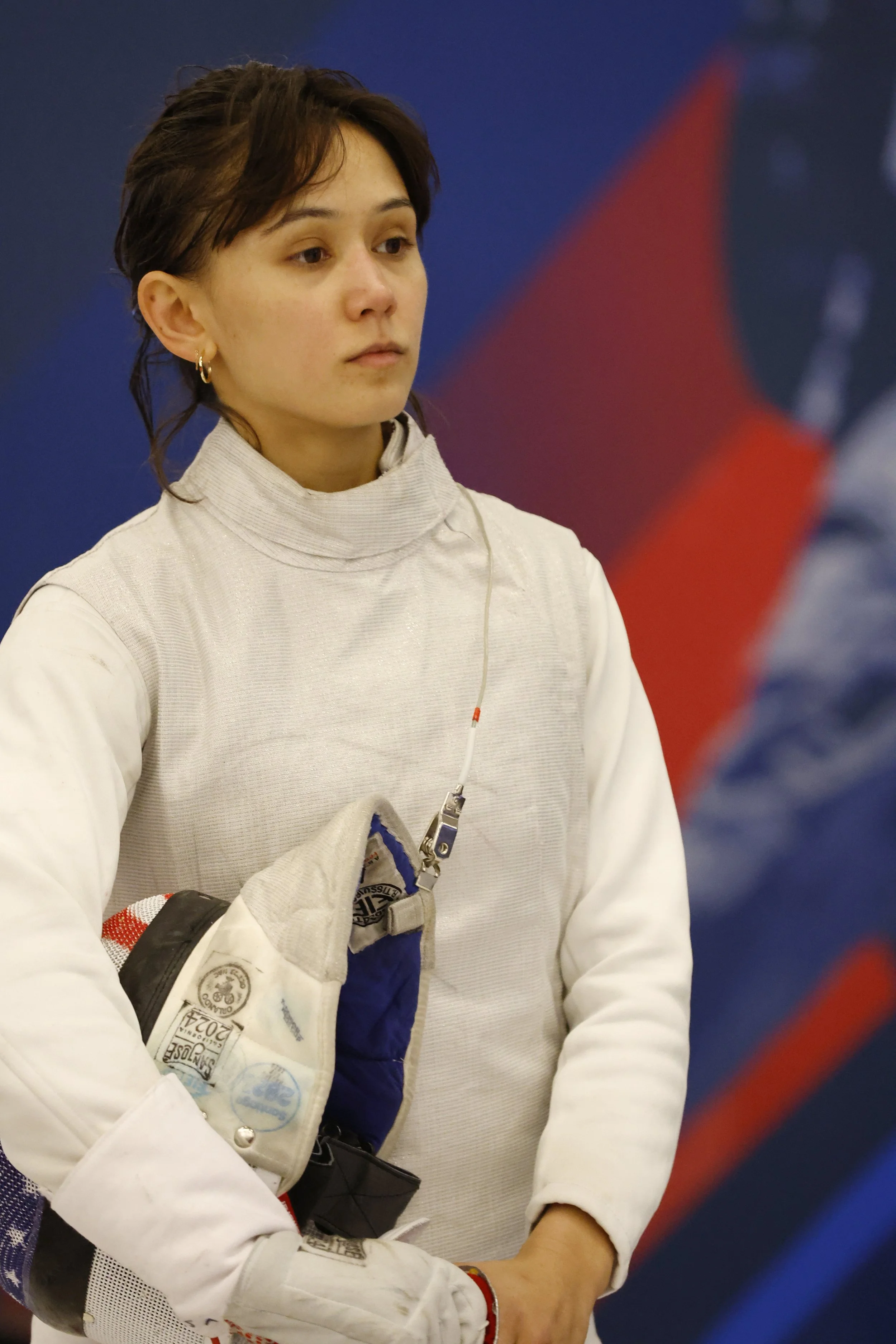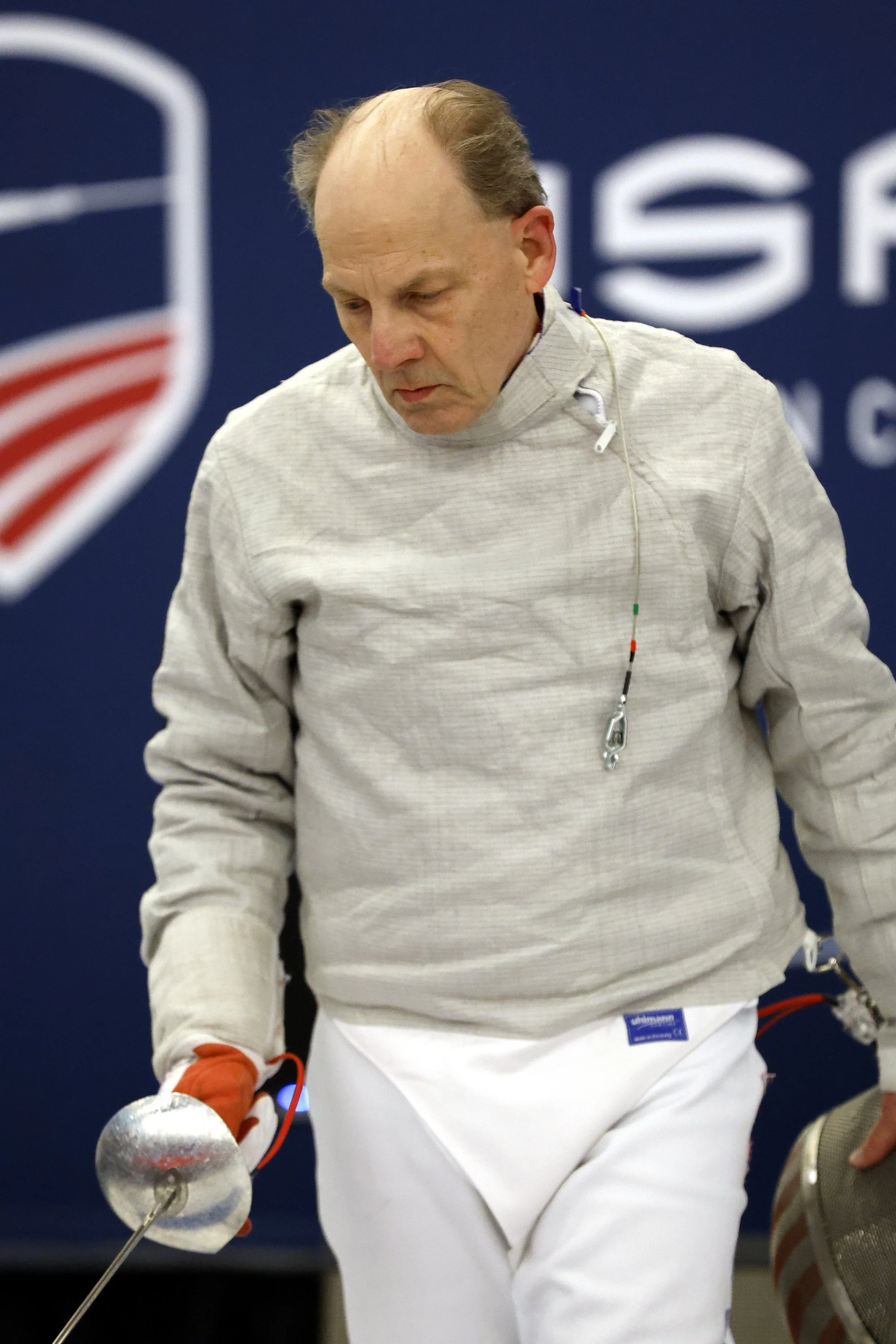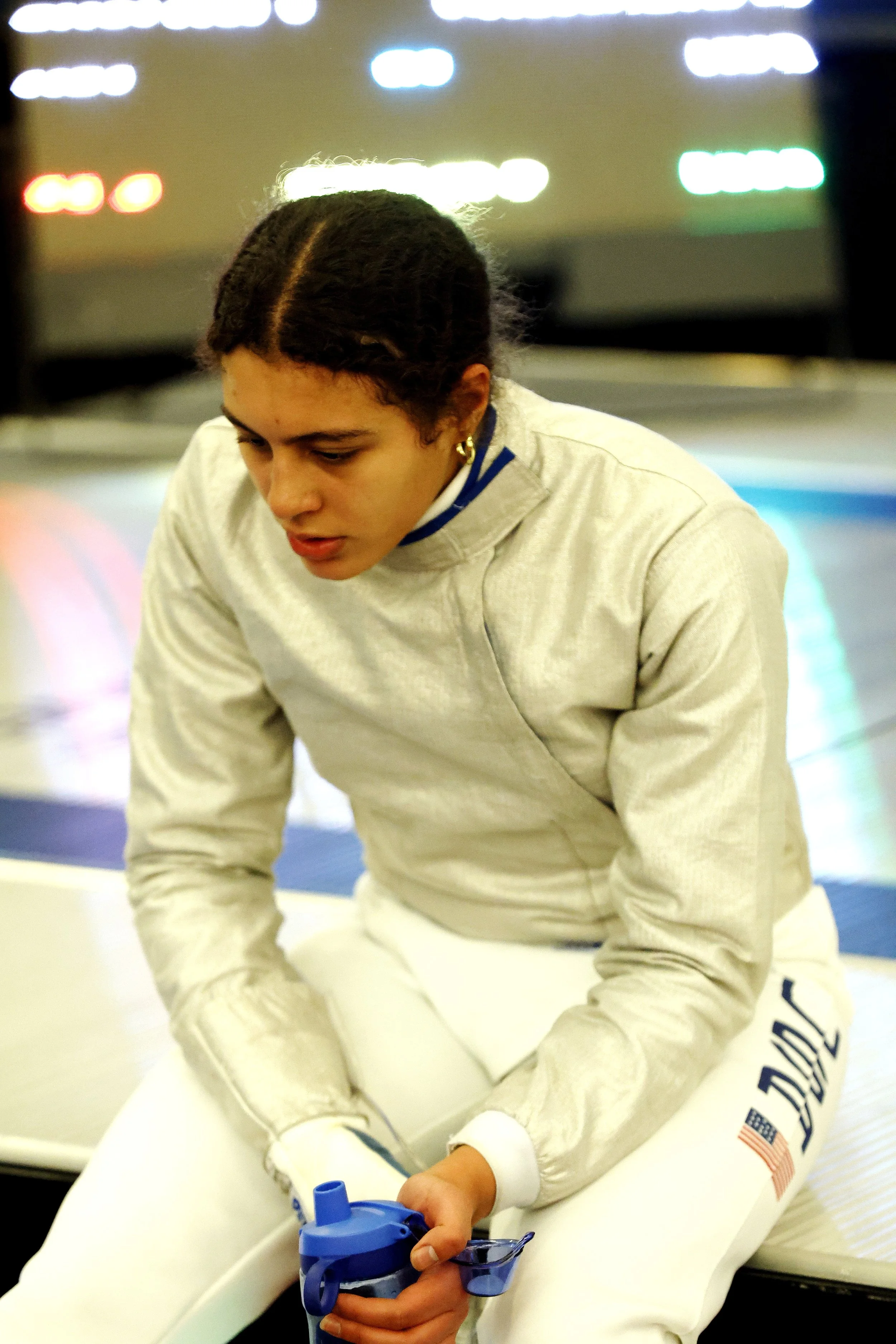Winning the Battle of Focus vs. Distraction
How Sport Hypnosis Can Sharpen Your Focusing Skills and Strengthen Your Mindset for Success
Focused or Distracted. As you position yourself on the strip between touches, you remember what your mental performance coach has taught you: Slow down and focus on your next move. Are you able to settle your mind into the present moment or are your thoughts still lingering in the disappointment of losing that last point or the feeling of pressure to win this bout? Focus vs. distraction is critical at this point.
Remember what your mental performance coach told you: Slow down and focus on your next move.
Enter Sport Hypnosis Training. Over the past 30 years, mental performance coaching has incorporated sport hypnosis as an effective tool to enable athletes in this very moment to be highly focused and attentive to the task at hand while disregarding distracting thoughts.
Although sport hypnosis has been scientifically defined and documented in sport psychology research for more than a quarter century, there are still lingering misconceptions about it. Simply stated, “sport” hypnosis is the use of hypnosis as an independent mental training tool very much like mindfulness training aimed at helping athletes acquire the ability to remain focused and disregard distractions at the most critical times. Additionally, sport hypnosis has been found to facilitate and enhance mental performance skills, including mental rehearsal, building confidence, eliciting the flow state and building mental toughness.
What is Hypnosis and How does it Work? Hypnosis is a unique state of consciousness in which our attention and focus is narrowed and intensified, thus blocking out all distractions to other things. In this way we become more capable of processing positive suggestions. In fact, we are experiencing this unique altered state of consciousness called "trance,” on a regular basis in the form of daydreams. Often referred to as “spacing out,” we are unaware of anything around us while being so connected to our own inner experiences. Dr. Milton Erickson, the father of modern hypnotherapy, referred to daydreams as “common everyday trances.”
The Orienting Response. One of the currently held theories as to how hypnosis engages the mind in such a powerful and highly attentive fashion to create the trance state is termed the “orienting response.” In attempting to understand the orienting response, it is helpful to use the analogy of a person hiking in a dense forest following a trail marked by lines painted on the trees. Suddenly they come to a clearing and attempt to find a line on the tree that marks the continuation of the trail. However, the line is not apparent. At that point the orienting response would kick in and the hiker’s mind shifts into a very narrow focus, attending only to detecting a painted line on a tree and not to any other stimulus in the environment. All internal sensations (e.g., hunger or fatigue) and external sensations (e.g., noises, weather) would be completely blocked out by this intense orienting response as it zeroes-in to discover where the trail continues.
Unshakable self-confidence is universally recognized as the most important element in the mindset for success.
Thus, the experience of the narrowing and intensifying of attention during the hypnotic state of trance is shown to be a very natural phenomenon occurring when the orienting response is triggered. Looking at it in this way allows athletes to become more comfortable with utilizing this natural state of trance that is evoked though sport hypnosis to use in their mental preparation and performance.
Strengthening a Mindset for Success. In reviewing the current research in sport psychology on the mental skills constituting a mindset for success, three mental abilities have been found to be enhanced and strengthened with the use of sport hypnosis as part of a comprehensive mental performance training program:
Mindful awareness during performance
Unshakable self-confidence
Mental toughness under pressure
Mindful awareness during performance is described by several labels, including the “ideal performance state,” the “flow state” or being in the “zone.” Indeed, the most significant mental characteristics experienced while in the flow state are being totally immersed in the task and a merging sense of action and awareness. Studies have shown sport hypnosis is an effective tool to enter the flow state consistently and achieve a “present – positive – process state of focused attention.”
Sport hypnosis is an effective tool to enter the flow state consistently and achieve a “present – positive – process state of focused attention.”
Unshakable self-confidence is universally recognized as the most important element in the mindset for success. Here again, research has shown that imagery training, when performed in conjunction with sport hypnosis that vivifies and intensifies the imagery, resulted in elevated levels of self-confidence.
Mental toughness. In their well-known book on sport hypnosis published in 2003, Edgette and Rowan stated, “athletes benefit not only from visualizing a best scenario but also having a mental strategy that allows them to deal with the mini personal and team glitches that arise during the course of an event.” In assisting athletes to build mental toughness and resiliency while under pressure, sport hypnosis has been used to establish “mental cues” to enable the execution of a mental plan for the upcoming event.
The plan includes three components: First, focusing on exactly what they will accomplish in this event and identifying what memories of performance excellence will be drawn from to build their self-confidence. Second, a detailed focus plan defining what they will be thinking and focusing on at key elements during the competitive event. Third, a refocusing plan to notice when they are distracted or feeling uncertain and that enables them to reconnect do their focus plan as quickly as possible.
A Fresh Look at Sport Hypnosis. It has been 30 years since Jim Taylor, Richard Horevitz and Gloria Balague published “The Use of Hypnosis in Applied Sport Psychology” in The Sport Psychologist in 1993, in which they recommend the integration of sport hypnosis into mental training programs. Since then, both researchers and practitioners in sport hypnosis have demonstrated how this remarkable natural phenomenon of the mind continues to expand the capacity for mental performance and assist athletes to perform at their best when it matters the most.
Online Resource — An Interview with the Author. This interview (click below) presents a thorough investigation of sport hypnosis from its earliest beginnings to modern-day applications as an effective mental performance tool. In the process, it debunks common misconceptions about hypnosis and describes how the phenomenon works and is tied to peak performance:
YouTube - Hypnosis in Sport and Performance Enhancement
About the Author. John J. Bowman, Ph.D, CMPC-E is the director of the Mind Plus Muscle Institute (mindplusmuscle.com) and a sport psychologist for Stony Brook University. As an author, lecturer and mental performance consultant he has been dedicated to integrating sport hypnosis into the field of sport psychology consulting for the past 40 years.



